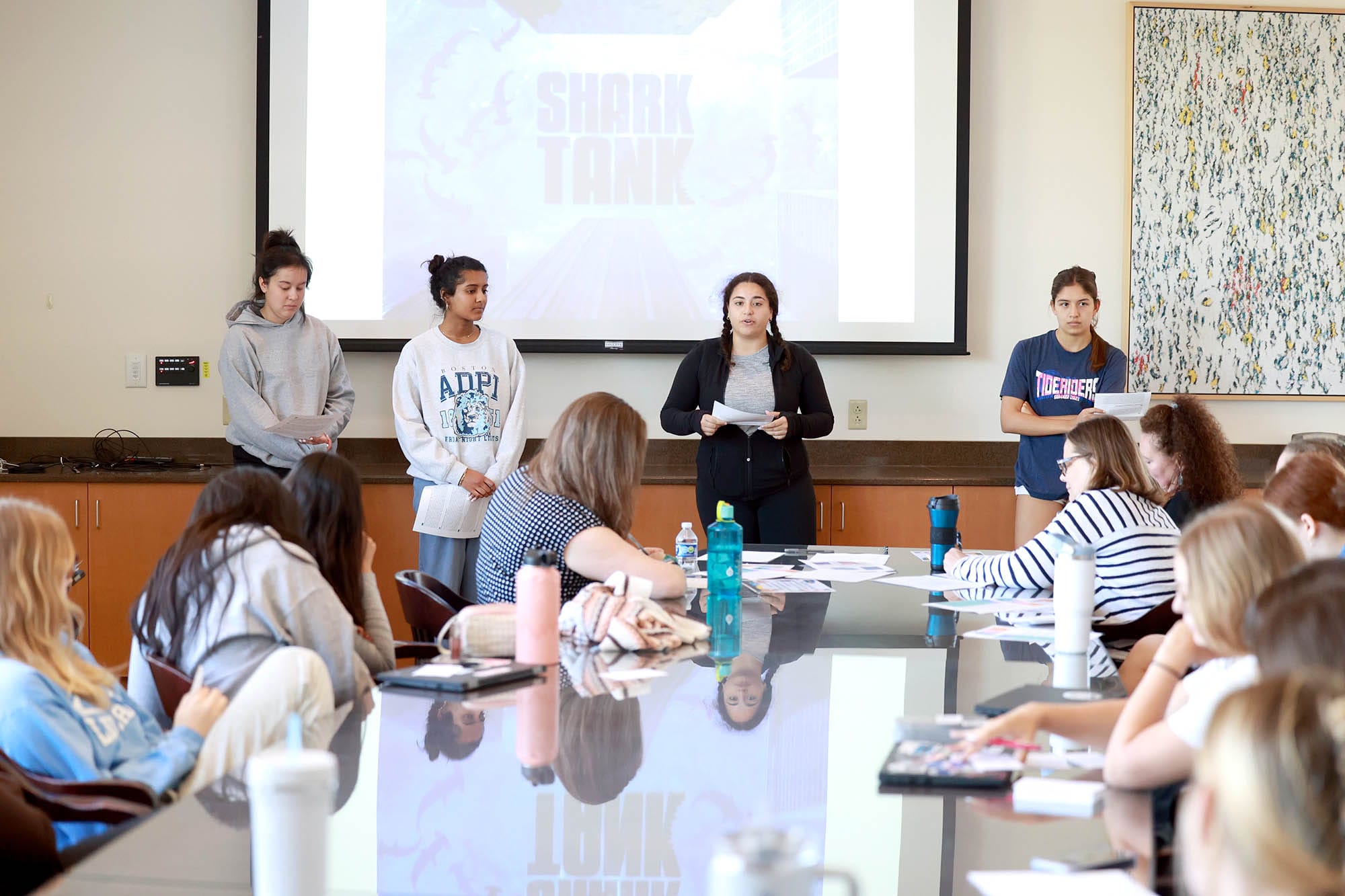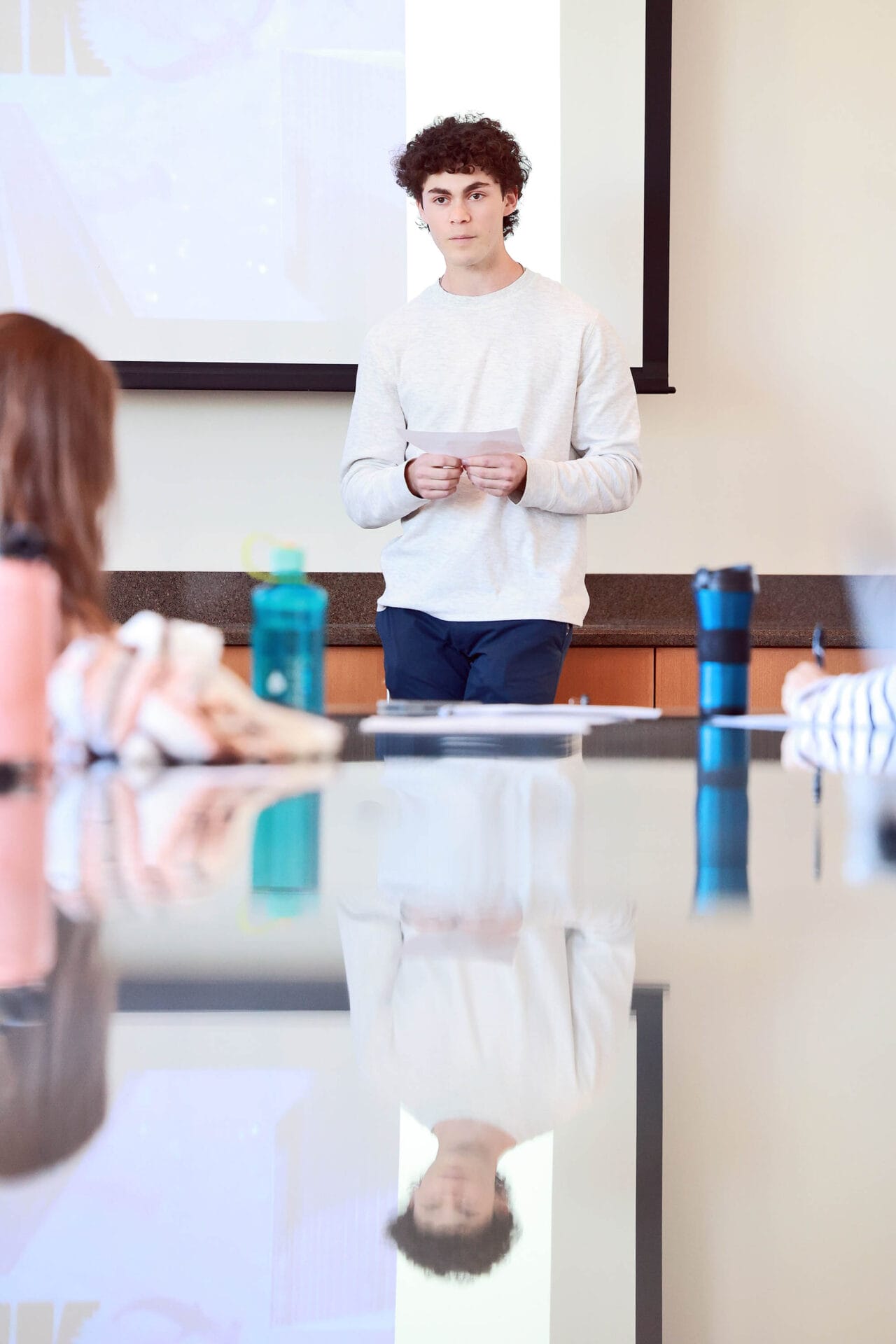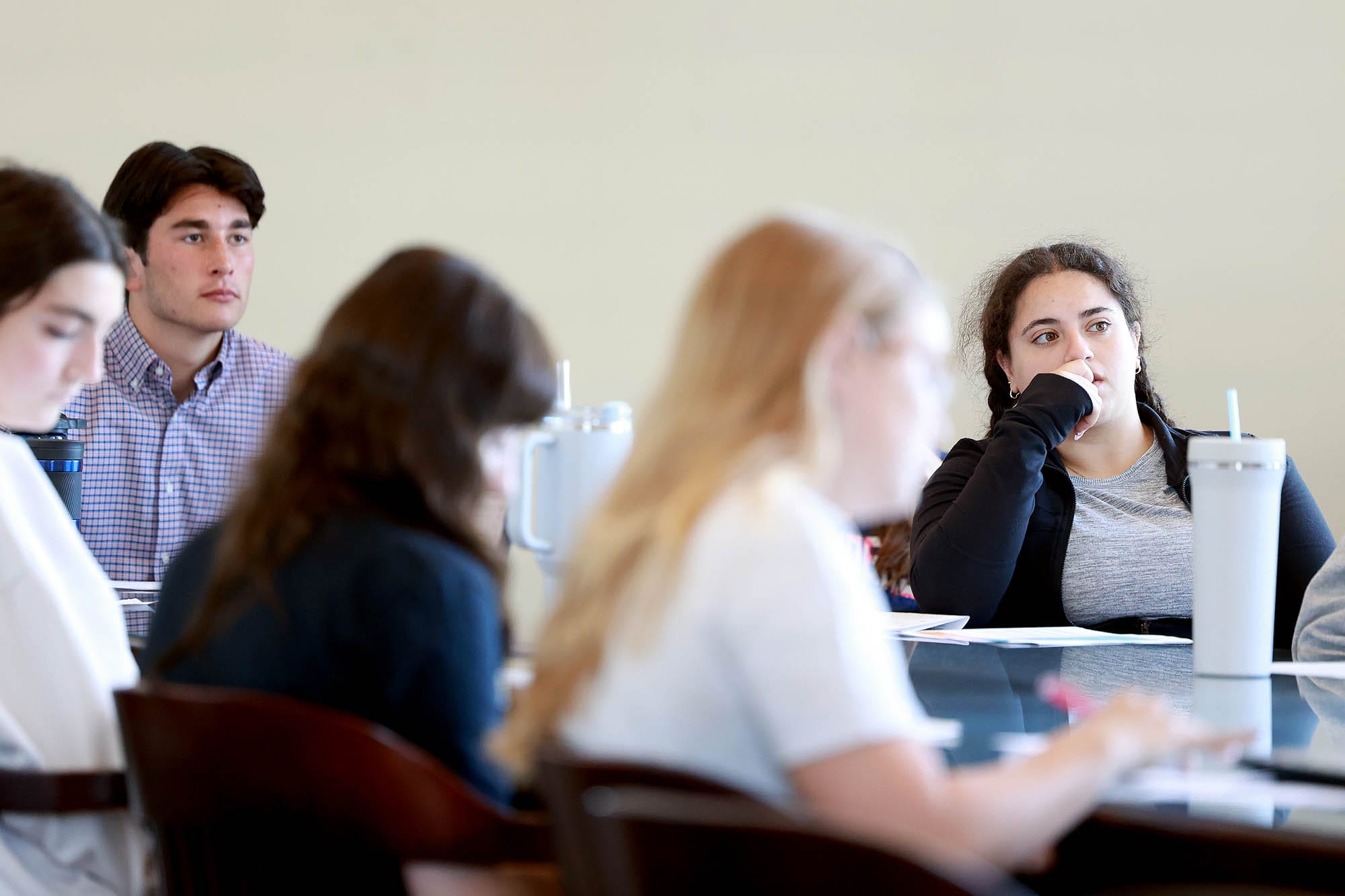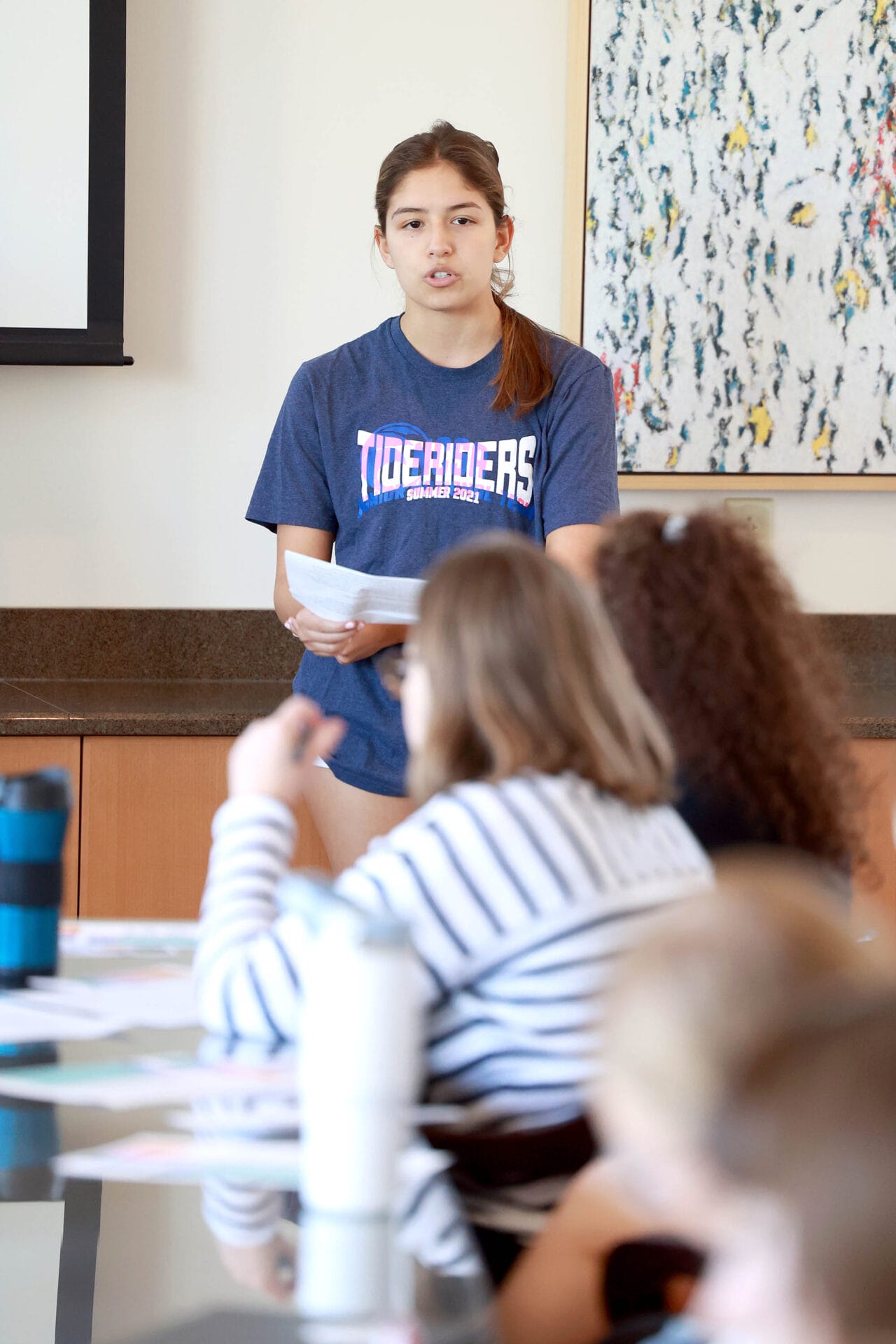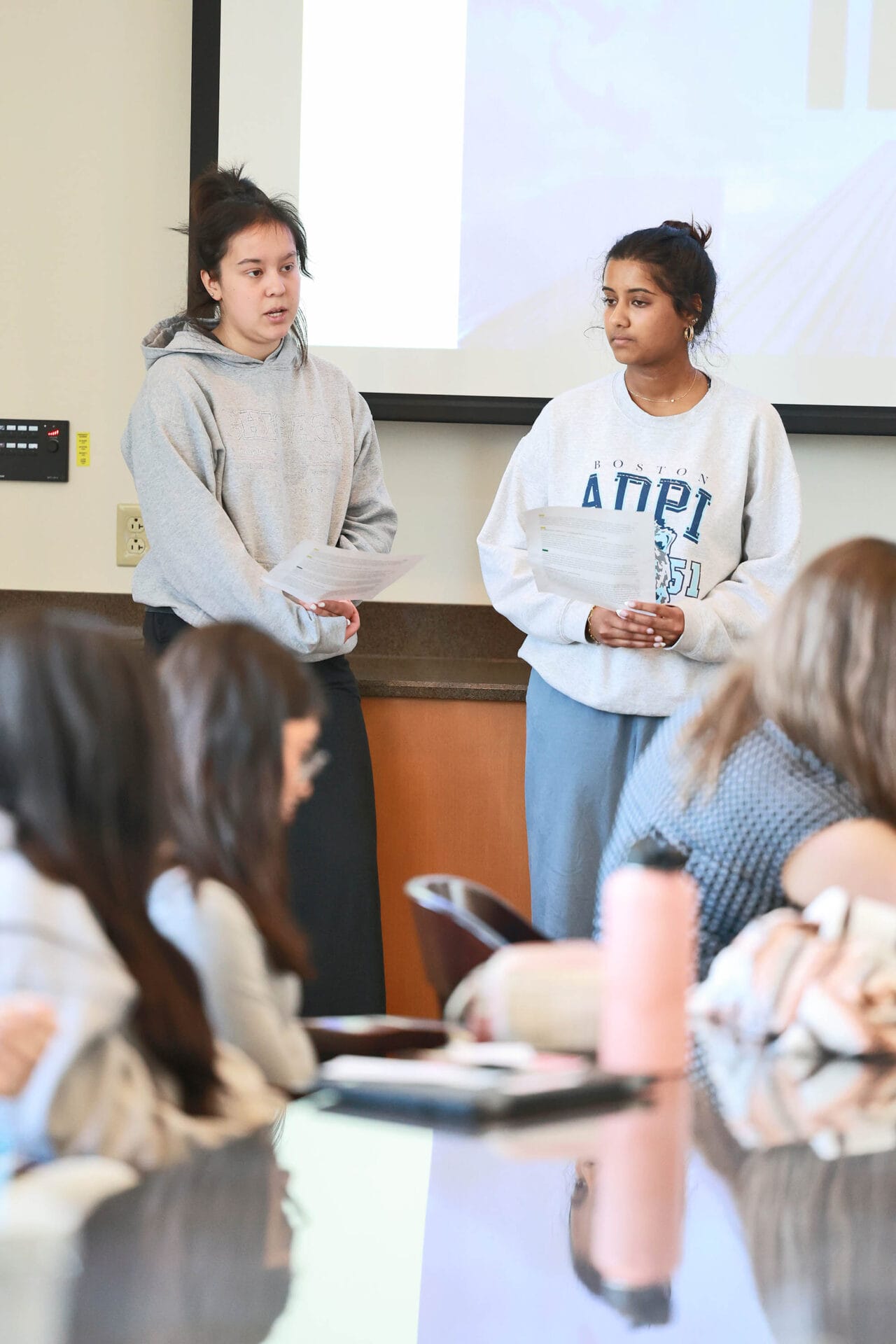Students in Upper School History Teacher Jason Asher’s Sociology class recently studied the American education system, identified systemic failures, and collaborated to find solutions. In small groups, they constructed Shark Tank-style pitches consisting of several policy-related reforms to improve education outcomes for students across geographic, socioeconomic, racial/ethnic lines. They then offered their pitches to a panel of judges made up of MICDS faculty and staff.
The students used sources from the PEW Research Center, the Department of Education, the Center for Education Reform, various universities, the American Federation of Teachers, and more. “They kind of run the gamut based on what particular proposals they intend to make,” explained Asher. “Their goal is to improve education outcomes for American students, the vast majority of which are enrolled in public schools.”
These budding sociologists did not disappoint. Groups presented compelling evidence that more funding is needed to improve the American public education system, and the groups had a variety of ideas about the best way to both raise funds and how to spend the money. Funding sources included grants, corporate donations, and evaluation/diversion of existing tax dollars. Ideas on how to improve education ranged from funding schools equally on a set dollar-per-student model, incorporating more non-academic (life skills) classes, promoting college preparatory classes in underserved schools, changing or even eliminating standardized testing, modifying the school day to 9 a.m. – 4 p.m. or shortening it to 9 a.m. – 2 p.m., developing or improving after-school programs, offering free breakfast and lunch to all students, reducing classroom size, expanding wifi access, eliminating homework and standardized curriculum, offering universal access to pre-kindergarten programs, bolstering teacher salaries, tackling overcrowding in applicable schools, moving to a four-day school week, and introducing a cohort model where classes are based on individual skills and interests instead of by age.
“I thought it was so cool learning about all the different aspects of what makes our education system,” said Alana Doherty ’24. “There are so many pieces you never think about, like how important the role of the teacher is in the learning environment or how many different ways people can learn and how these differences can be accommodated. My big takeaway was how crucial it is that we create a space where students can thrive in their own ways rather than creating a set list of goals for everyone to meet. In the same way each person is different, the system needs to also be different so that everyone has the ability to succeed on their own terms.”
Devon Carruthers ’24 said, “I thought that the project was super fun to get the chance to ‘pitch’ our ideas about how to improve education to other teachers and hear their feedback. I also didn’t realize how many different reforms to education are implemented in other countries like Finland and how they’ve been successful. I’m really glad we got the chance to do this project, and I’m hopeful that education will continue to improve in the future!”
“It was very interesting to get perspective on how flawed the education system is in the United States,” said Charlotte Derdeyn ’24. “Teachers are understaffed, undersupported, and are expected to achieve high levels of education with low salaries. Many are unable to pay off their college debts and this is deterring people from working in the industry. Forty to fifty percent of teachers quit within five years, and many schools struggle to find enough qualified teachers. Our system also does not support student’s individualized learning abilities; students who struggle to sit through hours of lectures are expected to go on medication, but the classrooms should be made to support the large numbers of kids with ADD, ADHD, and general kids who learn differently and do not learn well in lecture-based classes. Students should be taught to embrace their differences in learning and creativity, rather than to conform to a classroom setting.”
Well done, student researchers, and many thanks to our celebrity judges: Upper School Counselor David Hotaling, Associate Director of Admission for the Middle School Kerry Bryan, Assistant Head of School for Teaching and Learning Dr. Sally Maxwell, Upper School History and Social Sciences Teacher Dr. Tanya Roth, and Upper School Science Teacher Laura Bradford.
